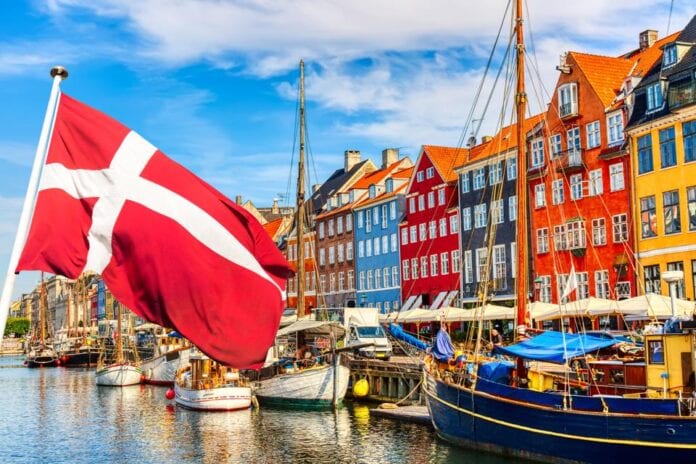All in half a day’s work: the countries where you could have 34 extra days off a year
Denmark is the best country for work-life balance, new research has revealed.
Software provider Vantage Technologies have calculated the amount of time people across the world spend working, using OECD data on weekly working hours and government paid holiday policies. The results reveal that Danish residents work 34 days less than the average UK worker.
Working from home has restored work-life balance for many UK residents, with no commute or travel for meetings considerably reducing the number of hours people dedicate to their job. With lockdown lifting for summer, people across the UK are also looking forward to spending their paid leave on holidays, (albeit staycation getaways to Skeg-Vegas) for the first time in months.
But what if you wish to maintain a newfound work-life balance and enjoy more time off when life returns to normal? Where across the globe might you work a shorter week and receive more paid holiday?
How many additional days off do workers in different countries receive compared to the UK?
1. Denmark – 34
2. Norway – 31
3. Sweden – 21
4. Netherlands – 21
5. Finland – 20
6. Luxembourg – 20
7. France – 20
8. Spain – 199. Lithuania – 19
10. Latvia – 16
Europe Average – 8
Denmark workers have the most time off
On average, the people of Denmark work just 37.8 hours per week – 4.5 hours less than the standard UK worker – and receive eight more days of paid holiday. Over a year, this results in 270 extra hours of down time, or 34 additional days of time off. A UK resident would spend 13.71% less time at work in Denmark.
Worried about taking a paycut for all that extra time off? No need to – the average Dane earns DKK 338,122, or £39,174 per year.
Denmark has recently been ranked the second happiest country globally in the 2021 World Happiness Report, during a year when the general happiness of populations has significantly decreased.
Across the globe, the report showed a rise in the frequency of stress, and feelings of worry and sadness. However, Denmark improved in the rankings overall, and the country’s healthy work-life balance could be the key to more positive sentiment among residents.
Norway is second, with 31 more days off a year than UK workers, followed by Sweden, where residents usually work 21 days less.
Based on OECD data, a UK resident in the average European country would work eight fewer days a year. This is still almost two weeks of holiday.
The country where key workers receive more holiday
Interestingly, a life in Luxembourg offers 20 more days off than the UK – but there are additional holidays available to certain workers. For example, if you work in the public sector, you are entitled to six additional days of holiday (43 a year). When you reach 50 years and 55 years of age, two additional annual leave days are added at each milestone. So a doctor over 55 could be entitled to 47 days of holiday per year.
Extraordinary paid leave is also allowed and not deducted from the total. Some examples include 3-6 days of paid leave for marriage, two days when moving house, 1-5 days for the death of a relative, and fathers receive ten days of paid leave for the birth of their child.
Move to Italy for paid honeymoons and Fridays off
While Italy doesn’t make the top ten, working here also has some amazing perks. Workers generally receive up to 104 hours ‘Riduzione Orario di Lavoro’ or ‘Reduction of Working Hours’ – which are hours that can be taken off without a reduction in salary. These can be used for appointments, going to the bank, or just for a few Fridays off.
The Italians also receive 15 days of paid leave when marrying. The most recent ONS figures state there were 242,842 marriages in England and Wales in 2017, equating to 7,285,260 days of paid leave in Italy.
Martyn Goodhand, Managing Director at Vantage Technologies: “Technology has come on leaps and bounds since the 90s – most information is only a simple search away. Pre-internet, the working week was very different. From quick formulas in Google Sheets, to streamlined administration systems – the modern working day is truly more efficient and productive.
“This study also shows that more hours at work don’t necessarily increase productivity. It’s easy to sit at your desk and work through breaks, lunches and into the evening, but regular time away from your screen and some fresh air truly does benefit your productivity more than overworking.”
Help keep news FREE for our readers
Supporting your local community newspaper/online news outlet is crucial now more than ever. If you believe in independent journalism, then consider making a valuable contribution by making a one-time or monthly donation. We operate in rural areas where providing unbiased news can be challenging. Read More About Supporting The West Wales Chronicle























